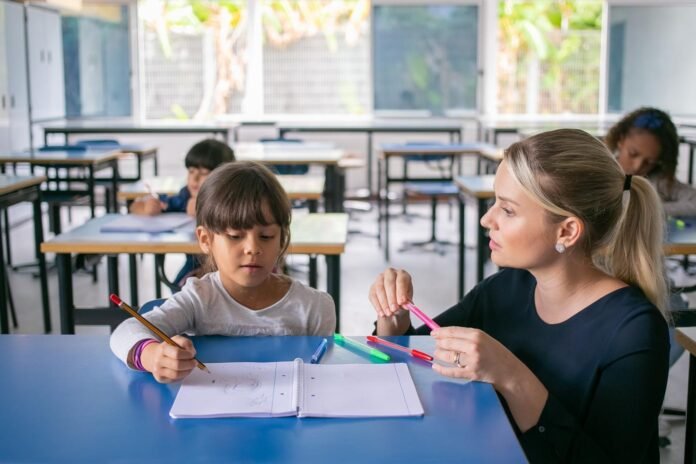Last Updated on July 17, 2024 by Nasir Hanif
Reading is not just a fundamental skill; it is a gateway to knowledge, imagination, and empowerment. However, for children with learning differences, mastering reading can be a challenging journey. Fortunately, individualized reading tutoring has emerged as a powerful tool for unlocking the potential of these children. Here are the key benefits of individualized reading tutoring for children with learning differences:
Table of Contents
Understanding Learning Differences
Learning differences encompass a spectrum of challenges, including dyslexia, ADHD, auditory processing disorder, and more. These differences can make traditional classroom teaching methods ineffective for some children, particularly in mastering reading skills. Individualized reading tutoring acknowledges and addresses these differences with tailored approaches.
Personalized Learning
One of the main benefits of individualized reading tutoring is personalized learning. Each child with learning differences has unique strengths, weaknesses, and learning styles. Individualized tutoring allows educators to customize teaching methods and materials to suit each child’s needs. This personalized approach fosters engagement, boosts confidence, and accelerates learning.
Multi-Sensory Techniques
Individualized reading tutoring often incorporates multi-sensory techniques, which engage multiple senses in the learning process. For example, an experienced reading tutor may use tactile materials, visual aids, auditory exercises, and kinesthetic activities to reinforce reading skills. This multi-sensory approach accommodates different learning styles and enhances comprehension and retention for children with learning differences.
Building Phonemic Awareness
Many children with learning differences struggle with phonemic awareness—the ability to recognize and manipulate individual sounds in words. Individualized reading tutoring employs specialized strategies to develop phonemic awareness, such as phonics instruction, sound blending exercises, and rhyming games. By strengthening these foundational skills, children with learning differences gain confidence and fluency in reading.
Structured and Sequential Instruction
Consistency and structure are essential for children with learning differences. Individualized reading tutoring provides structured and sequential instruction, breaking down reading tasks into manageable steps. Tutors scaffold learning, gradually increasing complexity as children progress. This structured approach minimizes overwhelm and frustration, fostering steady improvement.
Boosting Self-Esteem
Children with learning differences often experience feelings of frustration, inadequacy, and low self-esteem in academic settings. Individualized reading tutoring offers a supportive environment where children can experience success and celebrate achievements, no matter how small. As children make progress in reading skills, their self-esteem grows, empowering them to tackle new challenges with confidence.
Targeted Intervention
Individualized reading tutoring allows for targeted intervention in areas of difficulty. Tutors can identify specific challenges, such as decoding, comprehension, or fluency, and tailor instruction accordingly. By addressing weaknesses directly, tutors help children overcome obstacles and make significant strides in their reading abilities.
Fostering Independence
The ultimate goal of individualized reading tutoring is to equip children with the skills and strategies they need to become independent readers. Tutors not only teach reading skills but also cultivate metacognitive awareness—the ability to reflect on and regulate one’s own learning. As children become more proficient readers, they gain independence in navigating texts and accessing information.
Supporting Academic Success
Reading proficiency is a cornerstone of academic success across all subjects. Individualized reading tutoring lays a solid foundation for children with learning differences, enabling them to succeed not only in language arts but also in math, science, social studies, and beyond. As children develop strong reading skills, they become more confident and engaged learners in all areas of the curriculum.
In the journey to unlock the potential of children with learning differences through individualized reading tutoring, the role of family involvement cannot be overstated. Families serve as essential partners in supporting children’s learning and development outside of tutoring sessions. By actively participating in their child’s reading education, parents and caregivers reinforce the skills and strategies learned during tutoring sessions and create a cohesive learning environment.
Family involvement in reading tutoring can take various forms, from practicing reading together at home to communicating regularly with the tutor to monitor progress and address any concerns. Parents and caregivers can extend learning beyond the tutoring sessions by engaging in literacy activities, such as reading books together, playing word games, or discussing stories and characters.
Moreover, family involvement provides emotional support and encouragement, which are important for children facing learning differences. When parents and caregivers show a positive attitude towards reading and learning, children are more likely to develop a similar mindset. Celebrating achievements, no matter how small, and offering words of encouragement can boost children’s confidence and motivation to persist in their reading journey.
Additionally, family involvement fosters a sense of partnership between home and school, ensuring that the support children receive is consistent across different environments. By working collaboratively with reading tutors and educators, families can share valuable insights about their child’s strengths, challenges, and learning preferences, enabling tutors to tailor instruction more effectively.
Furthermore, family involvement promotes a holistic approach to education, recognizing that learning extends beyond the classroom walls. When families are actively engaged in their child’s reading education, they show the value of lifelong learning and show children that their education is a priority.
Final thoughts
Individualized reading tutoring holds immense promise for children with learning differences, offering personalized support, multi-sensory instruction, and targeted intervention. By unlocking the potential of these children, we empower them to overcome obstacles, build confidence, and achieve academic success. Investing in individualized reading tutoring is not just an educational decision; it is a commitment to nurturing the unique talents and abilities of every child.



























